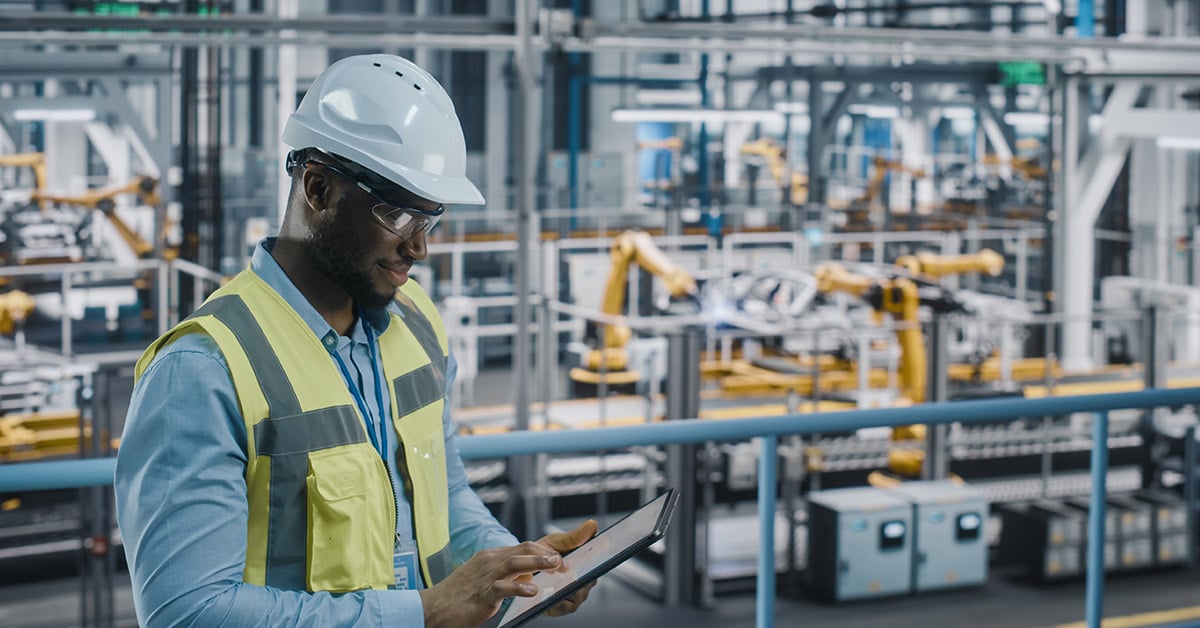In every manufacturing plant, someone must ensure the equipment is ready to run and the necessary infrastructure is in place. That person is usually the facilities manager. Their job is to ensure the plant can produce what’s needed as efficiently and as safely as possible. This blog discusses the main duties of a facilities manager. Read here if you need information to write a job description or to decide if the job is right for you.
What is a facilities manager?
In a manufacturing plant, the facilities manager is responsible for ensuring the organization can produce what’s needed as efficiently and safely as possible. This involves ensuring the infrastructure — roof, windows, lighting, HVAC and other services — is ready for use. It usually also extends to the production equipment, although responsibility may be delegated to a maintenance supervisor.
Facilities manager is often a senior position within an organization and carries significant responsibility. This can extend to health & safety and environmental management where it’s the facilities manager who ensures the organization complies with applicable laws and regulations.
Key roles of facilities managers
Businesses configure the role in various ways depending on their needs, processes and scale. However, the key functions include:
- Operational management: Overseeing daily operations of the facility, ensuring it is safe and fit for use. This extends from site security and building repairs to servicing and maintenance of the production equipment.
- Budgeting and financial planning: The facilities manager is usually responsible for multiple budgets covering infrastructure and equipment maintenance and labor costs. They may also handle waste treatment and disposal and energy usage. Expenditures must be forecast and monitored to ensure cost-effective operations.
- Space management: The facilities manager works with other members of the leadership team to ensure their needs for space are met. This can range from arranging janitorial storage to providing the floorspace and services for a new production line. Even signage and markings in the parking lot are part of the facility manager’s job description.
- Compliance and safety: The facilities manager ensures the plant or site complies with all the relevant health, safety and environmental regulations.
Responsibilities of facilities managers
Facilities management responsibilities will usually include the following:
- Maintenance and repairs: This includes making sure regular equipment and building maintenance is scheduled and performed, overseeing repair work and managing service contracts.
- Vendor management: Rather than employ people directly for every building and equipment maintenance task, many businesses find it more efficient to work with contractors. Contracted work typically includes janitorial services, landscaping and specialized aspects of technical maintenance such as boiler repairs.
- Emergency preparedness: Every manufacturing plant should anticipate and prepare for emergency situations. This can range from severe weather events such as thunderstorms and tornadoes to power outages and chemical spills. The facilities manager is responsible for developing and implementing emergency plans and procedures and usually does this with the help of a team assembled for the purpose.
- Energy management: The facilities manager is at the forefront of energy conservation efforts, not only to improve sustainability but also to reduce operating expenses. This includes commissioning or undertaking energy audits, identifying waste and implementing efficiency improvements.
Skills and qualifications
As should be expected for a job with such wide-ranging responsibilities, success requires a broad skillset. The main items listed on the facility manager job description will include:
- Technical skills: While unlikely to have to work on the equipment used throughout the plant, the facilities manager must have a sufficient technical background to discuss problems and solutions with specialists. Accordingly, they should be knowledgeable about HVAC systems, electrical systems, mechanics, plumbing and other aspects of building and equipment maintenance.
- Leadership and management skills: The facilities manager often leads a large team or even several teams tasked with duties ranging from small repetitive jobs to large one-off projects. Success requires a mix of strong people management skills and project management expertise.
- Communication skills: As the core of the job is providing services and capabilities for production and employees, good written and verbal communication skills are essential. Situations when these are needed include negotiating with vendors, understanding requests for improvements and coordinating repair and work schedules.
- Problem-solving abilities: As the facilities manager provides resources and services for all parts of the plant, they inevitably become a hub for questions, requests and complaints. They must address issues quickly and effectively as they arise.
- Qualifications: While a strong technical background is essential, a degree is not always required. What’s more important are experience and the skills listed above. Facility manager certification programs are a valuable way of verifying and demonstrating an understanding of the role and the body of knowledge required. Project management training and certification is useful when the role includes planning and oversight of complex, one-off projects.
Keeping the plant operating and the employees safe
Facilities manager is a vital role in every manufacturing plant. The person in this position is responsible for ensuring production has everything they need to meet customer demand in a safe and efficient manner. Their duties usually also extend to taking care of the entire building and even the surrounding grounds as well as disposal of waste products, including those that are hazardous.
In the modern factory, maintenance is an increasingly complex activity that needs extensive planning and management. As the leader in outsourced industrial maintenance, ATS helps factories implement effective preventive and predictive maintenance strategies that maximize metrics such as OEE while driving out waste. Contact us to learn more about our services.






